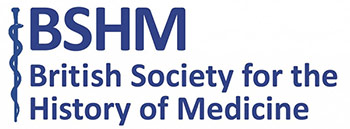 ©Royal College of Physicians, photography by Mike Fear
©Royal College of Physicians, photography by Mike Fear
When I was asked by the Faculty of History and Philosophy of Medicine and Pharmacy at the Society of Apothecaries whether I would consider programming an entirely new 3 day course in pharmacy history, I jumped at the chance. Working with my co-course director, Dr Stuart Anderson, we had the opportunity to shape a mini course from scratch. But what to include from an enormous history with a very broad reach? And would anybody be interested in attending?
We decided firstly to focus on British pharmacy history, although the course began with a very brief overview of the global story up to 1500. We were keen to include various strands in the programme including the pharmaceutical industry, the growth of the pharmacy profession and (as I’m a museum curator) plenty of access to original sources. We also decided on a multi-venue approach to appeal to delegates and make the most of the wonderful resources in London.
Day 1 at the Wellcome Trust and Library included sessions on alchemy, business history, and law and ethics, but also a very popular session from Peter Homan demonstrating various dispensing techiques and introducing us to prescription registers from the Library collection as historical sources. Day 2 was at the Royal College of Physicians with lectures on the pharmacopoeia, pharmacognosy in the 19th century, and delftware drug jars. Delegates were then treated to a tour of the RCP’s medicinal garden, and a chance to get up close to a selection of their rare books. The day ended with a tour of the new Royal Pharmaceutical Society Museum. The final day was at Apothecaries’ Hall with an account of their history, an exploration of their manufacturing operations, and a tour of the current building. The final afternoon comprised a lecture on the development of the pharmacy profession in the 19th and 20th centuries, and two sessions on the growth of the pharmaceutical industry.
It was an incredibly rich and packed 3 days with some excellent speakers, all of whom had written their lectures especially for the course, and some fantastic visits and source-based sessions. And the 37 delegates were, thankfully, suitably inspired and impressed. Typical feedback has been “the combination of talks, visits and displays was well balanced, refreshing and stimulating” and “the event was excellent and covered such an interesting range of material and locations.” Maria Ferran, Faculty Coordinator, has already received enquiries about running the course again, which is extremely pleasing. If you might be interested in attending a future course, contact Maria facultyhp@apothecaries.org
Briony Hudson
